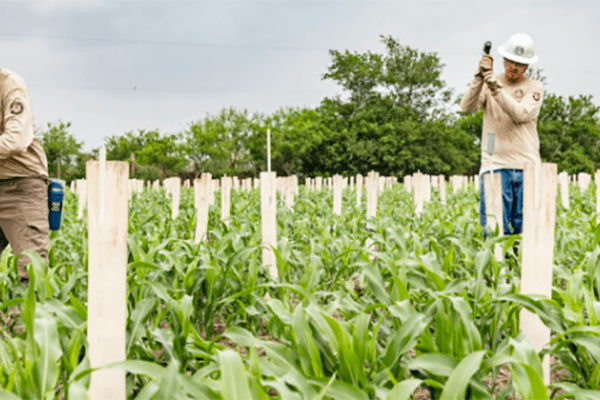|
RCBJ-Audible (Listen For Free)
|
Orangetown-based Company Will Spend More Than $500,000 To Plant 150,000 Trees Nationwide; Participate In Learning Curricula
By Tina Traster
Spring Valley, Nyack, Haverstraw and Stony Point will be the most likely beneficiaries of a spring-time tree-planting endeavor Nice-Pak plans to undertake in collaboration with two leading non-profit organizations, American Forests and the Sustainable Forestry Initiative’s flagship education program, Project Learning Tree.
The Orangetown-based Nice-Pak, which produces wet wipes for the global consumer market and appreciates the value of plant-based materials, is spending more than $500,000 to participate in a three-year program that promotes conservation, sustainable forestry, and environmental education.
Reforestation efforts help address climate change and social inequities faced by people in under resourced communities. Together with American Forests, Nice-Pak aims to foster the planting of 150,000 trees across the U.S., as well as a yet-to-be-determined number of trees in Rockland County.
“Climate change is the most critical challenge humanity is facing, and the pandemic has shown us that our wellbeing depends on both our immediate and global environments being healthy,” said Nice-Pak Chief Executive Officer Robert Julius.
The reforestation has the potential to capture 92,000 metric tons of carbon over the trees’ lifespan. Trees and forests are the best nature-based solution to mitigate climate change. They play a vital role in improving health and protecting the planet for future generations.
The company is seeking local partners to identify where trees are most needed. Nearly 30 percent of Rockland County is green, with large swaths of forest. However, American Forests has identified some of Rockland’s towns and villages, including Spring Valley and Haverstraw, as potential targets for planting.
“We are doing our due diligence to identify the right nonprofits so that we can work with their expertise,” said a company spokesperson. “We use models based on ‘low tree equity scores” to determine the right place. The organization also works to identify the right trees to plant.”
With few exceptions, trees are sparse in socioeconomically disadvantaged neighborhoods of color and more prominent in wealthier, whiter neighborhoods. Redlining policies, dating back to the 1930s, helped lay the groundwork for this inequity.
American Forests is focused on addressing this inequity by putting resources in neighborhoods of highest need. “It’s our moral imperative to do so, given how many life-saving and quality of life benefits trees provide people,” says America Forests’ website.
The Tree Equity Score tool is designed to ensure that all people experience the benefits of trees. It provides a social-equity-focused narrative, goals, and a guide path for building understanding, commitment, and action around Tree Equity.
Tree Equity Score calculates a score for all 150,000 neighborhoods and 486 municipalities in urbanized areas across the continental U.S.— cities and nearby small towns that have at least 50,000 people. More than 70 percent of the U.S. population lives in these urban places.
Headquartered in Orangeburg, Nice-Pak and its family of companies, including its sister companies PDI and Nice-Pak International, “is advancing sustainable forestry in its supply chain by increasing the amount of certified cellulosic fibers in its products year-over-year and committing the Nice ‘N CLEAN® brand to use 100 percent certified fiber by the end of 2022,” company officials said.
As exclusive wet wipe sponsors of Project Learning Tree and partners of American Forests, the company is also making an investment in the development and implementation of youth environmental education programs.
Project Learning Tree will develop and implement a digital curriculum specifically around the connection between healthy forests and human health and make it available to its K-12 school network beginning in spring 2022, reaching over 25,000 students over the next three years. Through Nice-Pak International colleagues in Europe, Nice-Pak will also make a commitment to the 1t.org campaign, a worldwide movement to conserve, restore and grow one trillion healthy trees worldwide by 2030.
“Environmental education has never been more critical,” said Kathy Abusow, President and CEO of Sustainable Forestry Initiative and Project Learning Tree. “Teaming up with Nice-Pak and American Forests enables us to accelerate students’ awareness, knowledge, and appreciation of the health benefits of trees while helping to build the next generation of sustainability leaders.”













